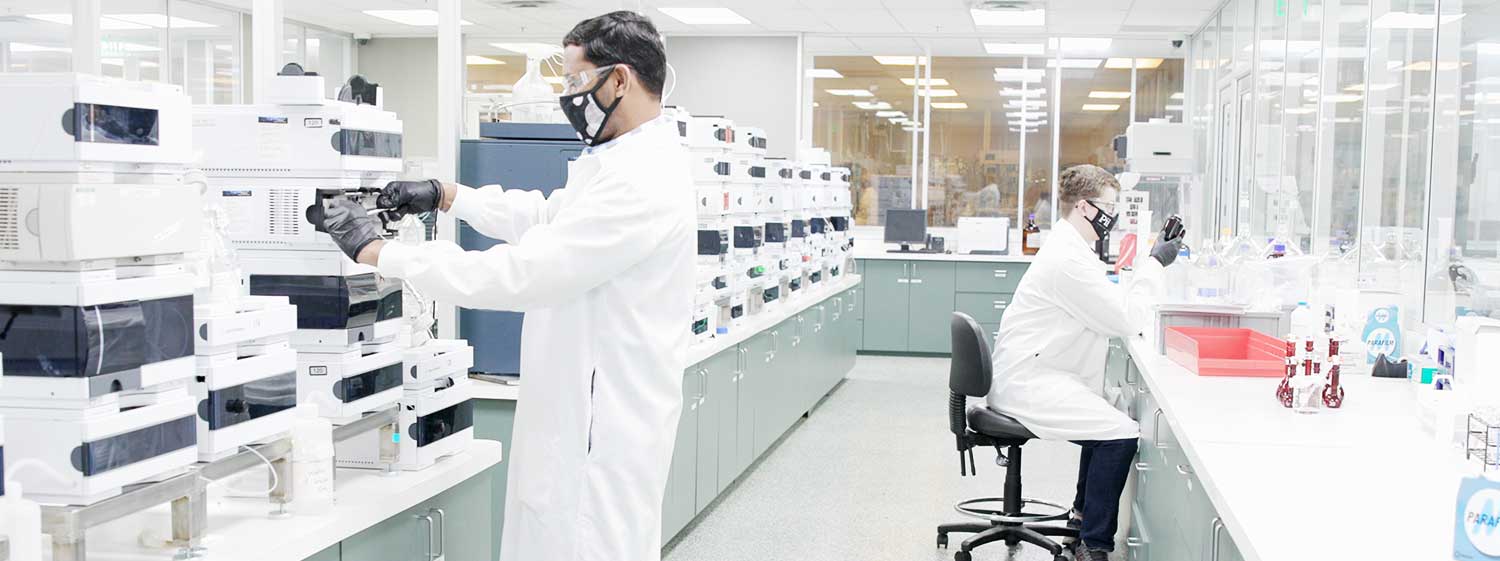Smart Investments: The Economics of Outsourced Analytical Services for Pharma
Smart Investments: The Economics of Outsourced Analytical Services for Pharma

The life science industry, known for its resilience during economic fluctuations due to the inelastic demand for drug products, constantly faces pressure to optimize costs. An effective strategy to achieve this is outsourcing analytical testing, which, although seemingly counterintuitive, involves spending money to save money in the long run. Contract labs can be pivotal for companies aiming to manage their budgets efficiently.
Outsourcing analytical testing offers significant flexibility during early-stage projects by allowing these costs to be expensed rather than invested in capital infrastructure. This approach eliminates the need for substantial spending on hiring, training, and maintaining specialized staff and facilities. For analyses with low frequency, high specialization, or expensive equipment requirements, outsourcing proves to be a cost-effective solution. Additionally, contract labs help avoid continuous investments in equipment upgrades and staff training, redirecting these funds towards core drug development activities.
Even large pharmaceutical companies with in-house analytical departments often operate with limited shifts, underutilizing equipment and resources. This scenario makes it challenging to justify the high total cost of ownership associated with capital investments and specialized personnel.1
Growing Market for Outsourced Analytical Testing
The global pharmaceutical analytical testing outsourcing market was valued at USD 8.3 billion in 2023 and is projected to grow at a CAGR of 8.4% from 2024 to 2030.2 Both large and small pharmaceutical enterprises increasingly collaborate with Contract Development and Manufacturing Organizations (CDMOs) for analytical testing services, allowing them to focus on their core competencies. Pharmaceutical companies dominate the analytical testing outsourcing market with a 48% share. Meanwhile, biopharmaceutical companies are expected to experience the highest growth rate, around 9%, driven by the need for analytical testing to enhance output, define biosimilars and biologics, and ensure continuous quality assurance.3
Assessing the Cost-Effectiveness of Outsourcing
Contracting with an outsource provider for a predetermined amount of testing offers drug manufacturers a clear estimate of development costs while utilizing state-of-the-art laboratory technology. Consider the following to determine if outsourcing analytical testing will save you money:
- Capabilities and Resources: Smaller or virtual biopharma companies often lack the in-house capabilities and capacity for analytical tests. Larger companies may have the capabilities but not the manpower to meet desired timelines. In both cases, outsourcing to a CDMO is financially prudent.
- Regulatory Understanding: Ensuring compliance with up-to-date regulatory requirements for various dosage forms is crucial. Lack of knowledge in regulatory standards can lead to queries or refusals by the FDA. Outsourcing to a CDMO with regulatory expertise can prevent such issues and ensure compliance.
- FDA-Approved Lab Maintenance: Maintaining compliance in an FDA-approved lab requires continuous investment in metrology, training records, and material logs. Outsourcing shifts these regulatory, quality, and compliance burdens to the analytical lab, allowing the company to focus on core activities.
Establishing a Collaborative Relationship
A successful partnership with a CDMO involves a mutual understanding of analytical testing requirements and technical challenges. Drug sponsors should evaluate the CDMO's capabilities, ensuring they offer broad analytical services and have the capacity to meet deadlines. Regular communication and site audits are essential to verify the CDMO's qualifications and maintain FDA approval status.
Continuous dialogue between the CDMO and the drug sponsor is crucial even after the contract is signed. Regular meetings to discuss project status and changes in priorities help maintain a productive and efficient partnership, ensuring high-quality analytical results.
In times of economic uncertainty, the collaboration between CDMOs and drug sponsors becomes even more vital. As one leading biopharma CEO aptly put it, "We need to work things through in partnership, figure out how to survive first. People still don’t understand we are one industry. We’re all in this together, dependent on each other, and now is not the time to get greedy. Now is the time for everybody to get to the same foxhole, and figure out how do we survive."4
References
- Analytical Services: Criteria for optimizing the contract lab experience, By Andrew Wood and Gary Deborski, Contract Pharma, Oct. 22, 2005.
- Pharmaceutical Analytical Testing Outsourcing Market Size, Share & Trends Analysi Report, Grandviewresearch.com, January 2024.
- Pharmaceutical Analytical Testing Outsourcing Market Research Report by Service, Prescient & Strategic Intelligence, Sept. 2022.
- Recession? We’re Not Even Over COVID, By Louis Garguilo, Outsourced Pharma, Dec. 19, 2022.
Talk to a Pii Scientist Today About Your Stand-Alone Contract Analytical Needs
ABOUT Pii
Pharmaceutics International, Inc. (Pii) is a US-based contract development and manufacturing organization (CDMO) located in Hunt Valley, Maryland. The experienced scientists, engineers, and staff at Pii pride themselves on adroitly employing a phase appropriate method of drug development for the prudent use of their customer’s resources as they solve challenging problems. In addition to offering end-to-end development services, Pii manufactures a variety of dosage forms to include complex parenteral drugs and has a wealth of analytical testing capabilities. Its Hunt Valley campus has four aseptic suites with lyophilization capabilities. Our talented professionals stand ready to help!
ABOUT THE AUTHOR
Rahul Mehta, MSc
Associate Director, Analytical R&D
Rahul Mehta joined Pii in November 2022 as an Associate Director, Analytical R&D. He leads the Analytical method validation team. Rahul has more than 20 years of experience in the pharmaceutical industry. Rahul previously served at Zydus Cadila Healthcare Limited, Lupin Limited, Pfizer Pharmaceuticals India, and Amneal Pharmaceuticals (India/US) with increasing responsibilities. He has expertise in analytical method development and method validation/verification/